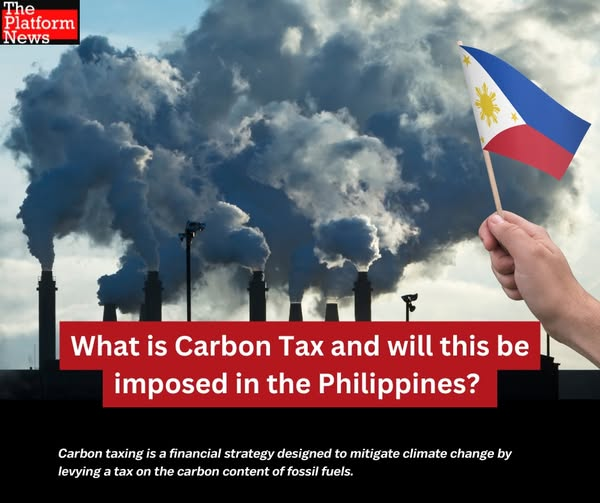In May 2024, the Asian Development Bank (ADB) suggested that the Philippines could reap significant benefits from implementing a carbon tax, with Country Director for the Philippines Pavit Ramachandran highlighting the necessity for any carbon tax to be implemented inclusively and fairly.
This recommendation comes in the wake of ongoing efforts of the Department of Finance (DOF) to establish a “responsive and economically sensitive” carbon pricing system that addresses the country’s unique economic context.
Carbon taxing is a financial strategy designed to mitigate climate change by levying a tax on the carbon content of fossil fuels. The fundamental principle behind carbon taxation is straightforward: by increasing the cost of fossil fuels, businesses and consumers are incentivized to transition to cleaner energy sources, which can significantly help in reducing greenhouse gas emissions.
The DOF’s consideration of a carbon tax forms part of a broader climate action strategy aimed at generating revenue that can be reinvested into sustainable projects. The department is exploring how this tax might be integrated into electricity bills, assessing its potential economic impacts, and promoting energy efficiency while encouraging a shift toward renewable energy sources.
By evaluating the feasibility of a carbon tax alongside an emissions trading system, the DOF aims to ensure that the Philippines aligns with its international commitments to reduce greenhouse gas emissions and foster a low-carbon economy.
Key legislative advocates for the carbon tax include Senator Sherwin Gatchalian and House Speaker Martin Romualdez. Gatchalian emphasizes the importance of developing a clear framework for carbon pricing that safeguards consumer interests, while Romualdez is focused on ensuring measures are in place for a fair transition for consumers. Their involvement illustrates a political commitment to tackling climate change while considering economic implications.
However, the proposed carbon tax faces considerable challenges and opposition. Concerns are being raised by a range of stakeholders, including lawmakers, consumer advocacy groups, and business leaders. For instance, Gatchalian has voiced the necessity for a framework that addresses consumer concerns, particularly regarding the potential increase in electricity prices.
Similarly, Romualdez has expressed his reservations about the economic impacts of implementing a carbon tax, especially during a time of rising inflation and economic recovery efforts following the pandemic.
Consumer advocacy groups, such as the Power for People Coalition, are particularly vocal against the tax, arguing that it could place an undue burden on low-income households. They stress that the implementation of the tax should not exacerbate existing economic inequalities.
Business leaders, especially from sectors reliant on fossil fuels, are also raising alarms about the timing of the tax, fearing it could hinder economic growth and recovery.
Moreover, analysts from the Philippine Institute for Development Studies underscore the need for transparency regarding the use of revenue generated from the carbon tax. They warn that without a clear and accountable system in place, there is a risk that the intended environmental benefits may not be realized.
Despite these challenges, supporters of the carbon tax highlight its potential to drive long-term economic and environmental benefits. They advocate for a comprehensive approach that includes public education campaigns aimed at raising awareness about climate change and the necessity of transitioning to cleaner energy sources.
Such initiatives will be crucial in addressing concerns and garnering broader support for the carbon tax as it progresses.



